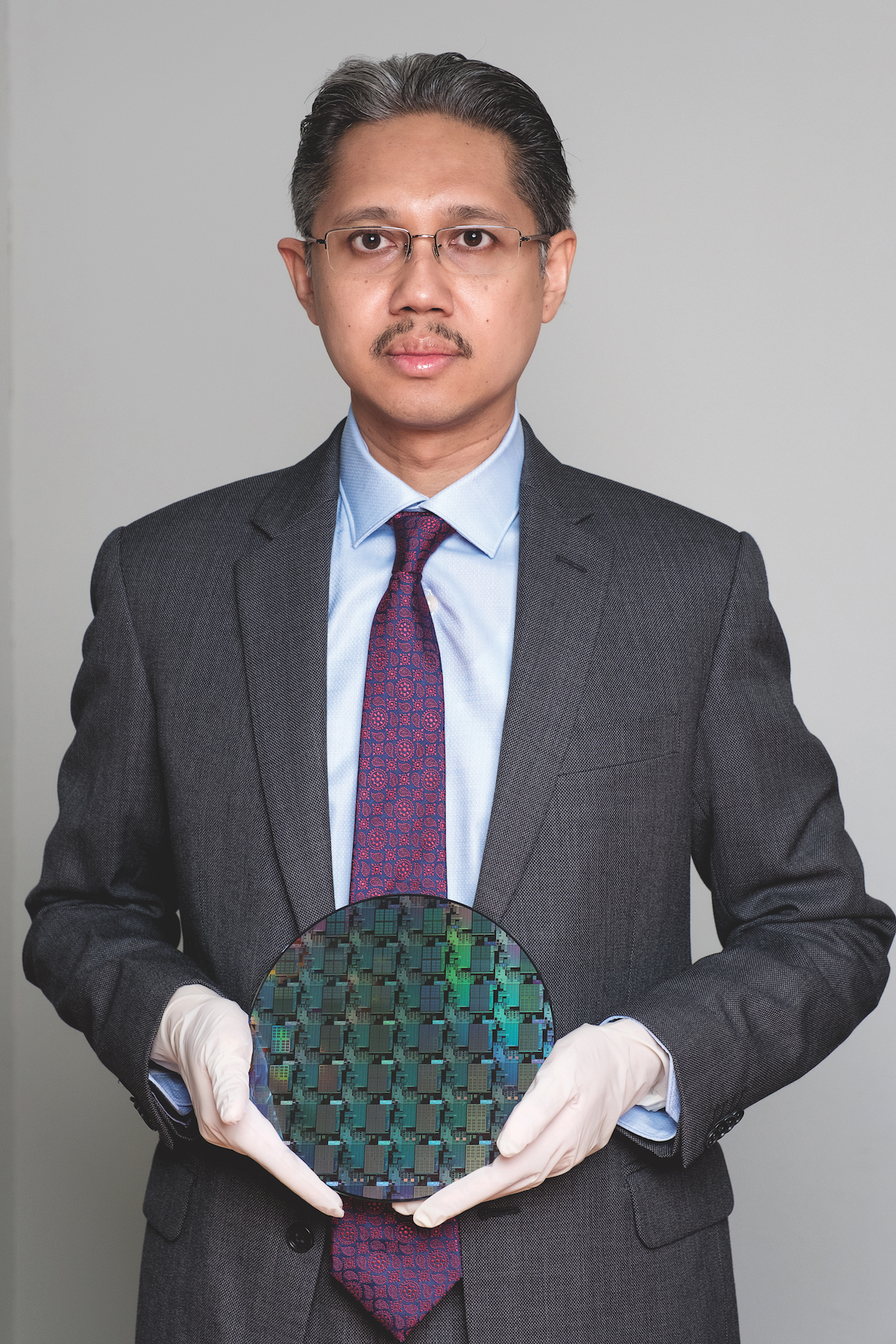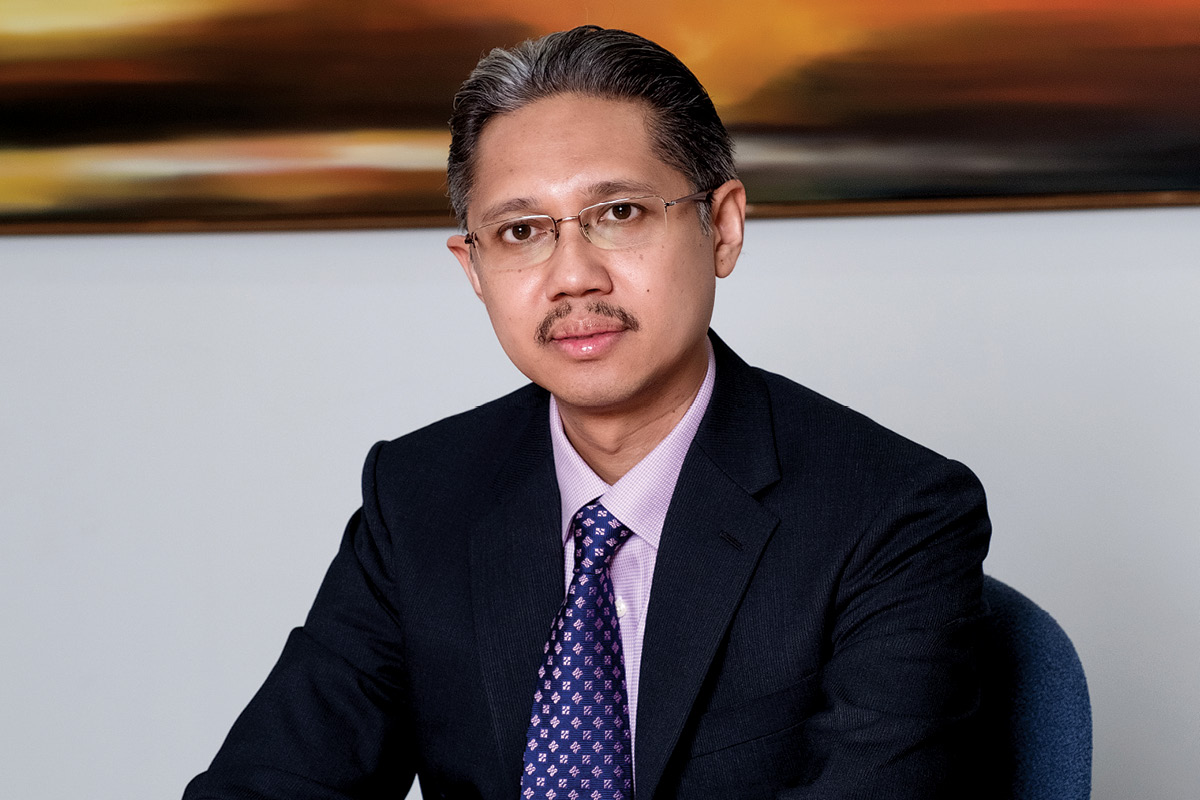When Firdaus Abdullah says a job is “tough”, it isn’t a throwaway line. This is a man who, after completing his Master of Electrical Engineering at Stanford, spent several years as a design engineer at Intel, before moving to London to become a high-flying venture capitalist and add an MBA from Oxford to his CV.
Firdaus Abdullah thrives on the responsibility & expectation
But being CEO of Silterra, a leading Malaysian semiconductor wafer foundry, is a challenge unto itself. “It was never my plan to run a company like Silterra, because running a foundry is tough,” he tells The CEO Magazine. “It is a really difficult job. There is a lot of pressure because of the uncertainty. When you are running a foundry, you don’t have a long-term contract. You don’t have a customer that says, ‘I’m going to buy this device from you’ or ‘this set of devices from you for the next five years.’ You have to keep winning business on a continuing basis.”

“You can ask the CEO of any foundry and they’ll say the same thing: it’s up and down. It really is a daily slog. Being a venture capitalist is easy in comparison: you sit on a board and direct people, and you don’t have to get your hands dirty.”
Don’t mistake this refreshing honesty as a grievance, Firdaus thrives on the responsibility and expectation. Not only does he have the fate of Silterra in his hands; the company is representing Malaysia’s tech industry, which is in a constant battle to keep pace with Taiwan.
“As a proud Malaysian, that’s why there is a tremendous satisfaction in what I’m doing and what we’re achieving,” says Firdaus. “I’m fortunate to have a great team and wonderful staff too. I mean, my executives are all older than me, so I draw on that experience and encourage their creativity.”
Silterra weathers the financial crisis
Firdaus was appointed CEO in 2015 but, to fully appreciate his involvement in the development of the chip-maker, we need to rewind to 2006. “While I was in London, one of my former investment company CEOs [Kah Yee Eg] became CEO of Silterra,” he reveals.
“He called me and said, ‘You know, Firdaus, we want to build Silterra from a single-site to multi-site business. And to do that, we need to buy other fabrication plants.’ By the time he’d finished his sell, I’d decided I was going to join him, and I moved back to Malaysia to become vice-president. The vision was to increase the foundry’s annual revenue to US$2 billion and then hold an IPO or sell to an even bigger player. I thought I’d only be with Silterra for five years and then return to venture capital. But then the financial crisis hit in 2008, and it just changed the whole dynamic of the industry.”
The financial crisis hit in 2008, and it just changed the whole dynamic of the industry.
In the face of the industry’s new volatility, Firdaus played an integral role in stabilising the company. “We managed to secure a number of key customers from the consumer side of things in that first three or four years after I came on board, and by 2010 we were doing pretty well,” he explains. “Outside the big players like Samsung, we actually became number one in the field of display driver chips for smartphones and feature phones, so that was the turning point, really.”
Taking on Taiwan
Now Silterra is spending US$30 million a year on developing groundbreaking technologies, and has branched out into the Internet of Things, silicon photonics, and biomedical devices. It also has plans to enter the automotive market within the next three years. It already makes chips for tech giants like Apple and LG Electronics, and, Firdaus insists, its popularity is set to boom with potential customers that are only now realising there are options outside “gold-standard Taiwan”.
“We are very good at developing novel technology for new markets, and that is something we are very proud of,” Firdaus says. “Customers from all around the world are asking us to develop technology for them. They tell us, ‘We are coming here because your quality is just as good as Taiwan, and you’re more accommodating and easygoing.’” Clearly, when the going gets tough, Firdaus gets going.



